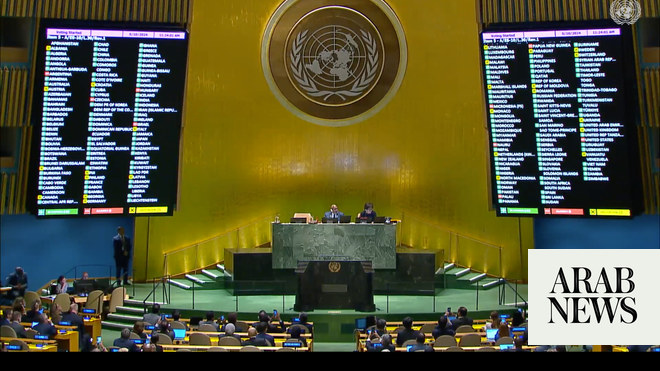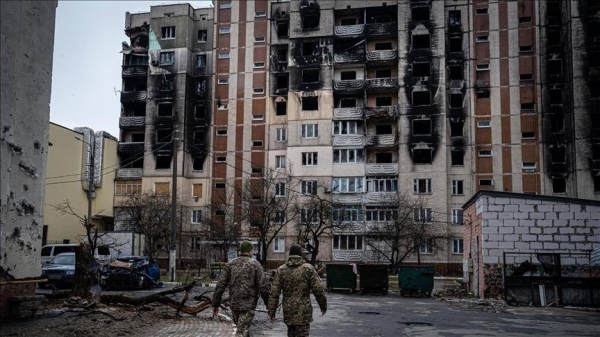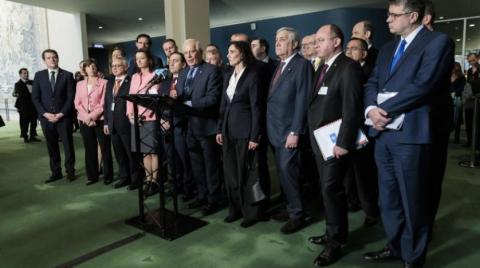
The UN General Assembly on Thursday approved a resolution calling for "international cooperation" and "multilateralism" in the fight against COVID-19, in the first response by the international body since the outbreak began.
The resolution, approved by consensus, also stresses "the need for full respect for human rights" and that "there is no place for any form of discrimination, racism and xenophobia in the response to the pandemic."
Russia was unsuccessful in opposing the resolution with its own text that was supported by four other countries.
The UN resolution emphasizes the central role of the body in the global health and economic crisis. It was submitted by Switzerland, Indonesia, Singapore, Norway, Liechtenstein and Ghana, and adopted by 188 of the 193 states that make up the body, diplomats said.
The Russian text -- which also discussed cooperation but included an implicit demand for a general lifting of international sanctions, seen as a brake on efforts to fight the virus -- was supported by the Central African Republic, Cuba, Nicaragua and Venezuela.
Normally, General Assembly resolutions are adopted by majority votes or by consensus. But in this case, because ambassadors are working from their missions or from home as a result of COVID-19, the new rule calls for silence procedures for all votes.
Under the procedure, if a country supports a resolution, it does nothing. If it opposes a resolution, it sends an email breaking silence, which scuttles a resolution’s approval even if it has overwhelming support.
Unlike the UN Security Council, the resolutions adopted by the General Assembly are not binding but have a strong political value depending on their support.
According to UN Secretary-General Antonio Guterres, the coronavirus is "the most challenging crisis we have faced since the Second World War."
Just last week, as the pandemic spread around the world, killing thousands and infecting many more, Guterres warned that unless the world came together to fight the virus, millions of people could die.
On March 23, he called for an "immediate global ceasefire" to protect vulnerable civilians in conflict zones from the ravages of the pandemic.
Few countries have heeded his appeal.
On the Security Council, which has been silent since the start of the pandemic, the five permanent members (the US, the United Kingdom, Russia, China and France) are divided on reaching a resolution to support Guterres appeal.
They have yet to produce a concrete solution, to the increasing exasperation of the 10 non-permanent members.
The US and China continue to clash over the origins of the virus that first emerged in central China late last year, which Washington wants to highlight.
Beijing and Moscow, which both have veto power, are also reluctant to see the Security Council -- which is responsible for global peace and security -- take up an issue that has until now been a primarily health and economic issue.











